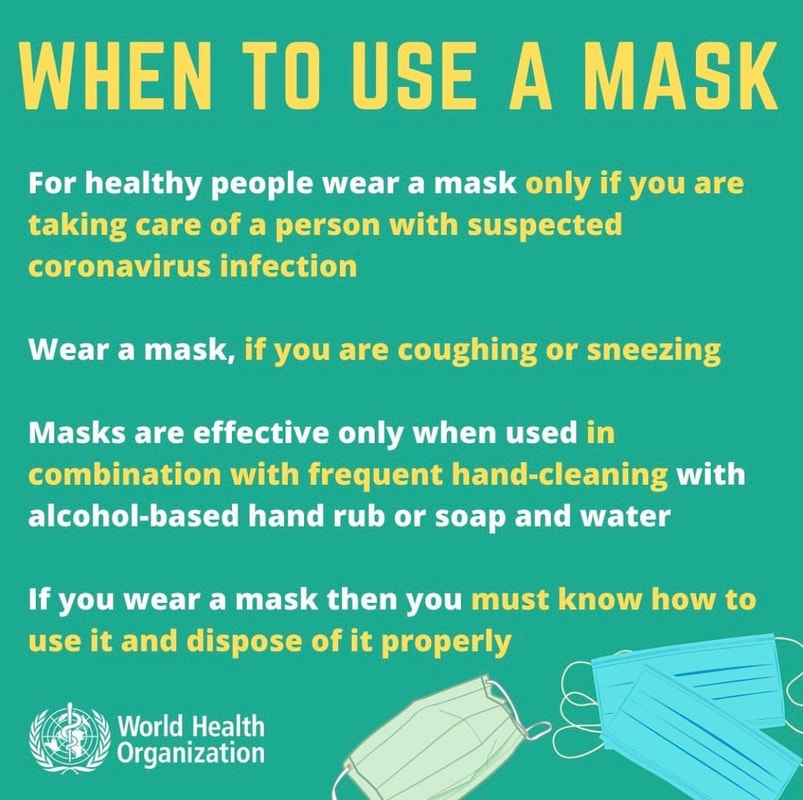.......
REGULAR MEETING OF THE BOARD OF DIRECTORS AGENDA
Thursday, March 26, 2020 at 9:30 a.m.
EPHC Clinic Conference Room, Portola Campus, Portola, CA
The Board meeting is accessible to the public via live streaming at: https://zoom.us/j/940313821 Or by phone at: Phone Number 1.669.900.6833; Meeting ID: 940 313 821
REASONABLE ACCOMMODATIONS: In compliance with the Americans with Disabilities Act, if you need special assistance to participate in this meeting please contact the Clerk of the Board at (530)832-6564. Notification 72 hours prior to the meeting will enable the Eastern Plumas Health Care to make reasonable arrangements to ensure accessibility.
Presenter(s)
Gail McGrath
Gail McGrath
I/D/A Page(s) A
I
I/D
4. Public Comment Members of the Public
This is an opportunity for members of the public to address the Board on items which are not on the agenda. Comments are limited to three minutes ordinarily, unless the Board Chair indicates a different amount will be allotted. Comments should be limited to matters within the jurisdiction of the Board. Under Government Code Section 54954.2 – Brown Act, the Board cannot take action on any item not on the agenda. The Board Chair may choose to acknowledge the comment, or, where appropriate, briefly answer a question, refer the matter to staff, or set the item for discussion at a future meeting.
- Call to Order
- Roll Call
- Board Comments
• Resolution 284 – LAIF
- Auxiliary Report
- Staff Reports
• Chief of Staff Report
• Chief Nursing Officer Report
• Clinic Director Report
• HR Director Report
• Chief Financial Officer Report • Management Reports
• Chief Executive Officer Report
Eric Bugna, MD I/D Penny Holland I/D Rhonda Grandi I/D Lori Tange I/D
9
10-21
I
5. Consent Calendar Gail McGrath I/D/A A. Agenda
1-2
- Meeting Minutes of 2.27.20 Finance Committee 3-4
- Meeting Minutes of 2.27.20 Regular Board Meeting 5-6
- Resolution 282 – Plumas Bank 7
- Resolution 283 – Bank of the West 8
Katherine Pairish
Staff I/D Jayne O’Flanagan I/D
I/D
1
Regular Meeting of the Board of Directors of Eastern Plumas Health Care
March 26, 2020 AGENDA – Continued
I/D/A 22-23 The CAH Committee recommends the following for approval by the Board of Directors:
8. Policies
A. PolicyReview
Annual Policy Review
- Ambulance Policies
- Clinic Policies
- Environment of Care Policies
- Infection Prevention Policies
- Information Technology Policies
• Pharmacy Policies
• Radiology Policies
• Skilled Nursing Policies
- Committee Reports
• Finance Committee • Planning Committee - Board Closing Remarks
- Closed Session
Board Members I/D
Gail McGrath I/D/A
A. Hearing (Health and Safety Code 32155) Subject Matter: Staff Privileges
B. Public Employee Appointment (Government Code Section 54957(b)(1)) Title: CEO
12. Open Session Report of Actions Gail McGrath I Taken in Closed Session
13. Adjournment Gail McGrath A
The next regularly scheduled meeting of the Board of Directors of Eastern Plumas Health Care is April 23 , 2020 at
EPHC’s Clinic Conference Room, 480 1st Avenue, Portola, CA, 96122.
2
1. Call to Order
EASTERN PLUMAS HEALTH CARE DISTRICT MEETING OF THE STANDING FINANCE COMMITTEE OF THE BOARD OF DIRECTORS
MINUTES
Thursday, February 27, 2020 at 8:30 a.m.
EPHC – Administrative Conference Room
500 1st Avenue, Portola, CA
Meeting was called to order at 8:34 a.m.
- Roll Call
Present: Paul Swanson, M.D.; Harvey West
Staff in attendance: Katherine Pairish, CFO; Jayne O’Flanagan, Acting CEO; Ashlie Preston, Executive Assistant
Absent: None - Approval of Agenda
The agenda was approved as submitted. - Approval of Minutes
The minutes were approved as submitted. - Board Comments
No comment was received. - Public Comments
No comment was received. - CFO Report
Report of January Financials
Summary: For the seven months ended January 31, 2020 we posted $24,640,631 in gross revenue. This was over our budgeted amount of $22,749,078 by $1,891,553. Year-to-date net patient revenue after contractual adjustments and allowances was $15,117,758. This was over our budgeted amount of $13,591,871 by $1,525,887. Year-to-date net loss was $810,312 and our budgeted net loss was $1,797,010. For the month of January, gross patient revenue was over budget by $380,099 and we posted a net profit in the amount of $175,265. This was mainly due to receipt of the $60,000 Anthem grant and $145,000 for the ambulance grant.
Revenues: Year-to-date total Inpatient revenue was over budget by $693,687. Outpatient revenue was over budget by $1,156,322 and Clinic revenue was over budget by $41,544.
Expenses: Total operating expenses for the seven months were over budget by $720,503.
Salaries and Benefits: Combined Salaries and Benefits were under budget by $19,812.
Purchased services and professional fees were over budget by $345,734. This was due
mainly to un-budgeted legal and recruiting fees.
Repairs & Maintenance: Repairs & Maintenance were over budget by $106,522.
Supplies: Supplies were over budget by $286,288.
Depreciation Expense: Depreciation Expense was under budget by $153,910. This is mainly due to timing of purchases.
Meeting of the Standing Finance Committee of Eastern Plumas Health Care
February 27, 2020 MINUTES - Continued
Other Expenses: Other expenses were over budget by $51,291. These include training, travel, and dues and subscriptions.
Revenue Cycle: Gross Accounts Receivable ended the month at $5.7M. Gross Accounts Receivable days at January 31, 2020 were 50 - Up a bit from December, 31, 2019 but still very good. We budgeted 58 and best practice is 55.
Additional Information: Days cash on hand at January 31, 2020 was 63. Down 15 days from December mainly due to the funding of the HQAF IGT in the amount of $697,548. January 31, 2019 days cash on hand was 50.
We are continuing to be as conservative as possible with cash in order to maintain the required balance to fund upcoming IGT's (Intergovernmental Transfers). We will be funding the 18/19 Rate Range IGT in the amount of $1.49 million mid-March.
Adjournment
Meeting adjourned at 9:18 am.

